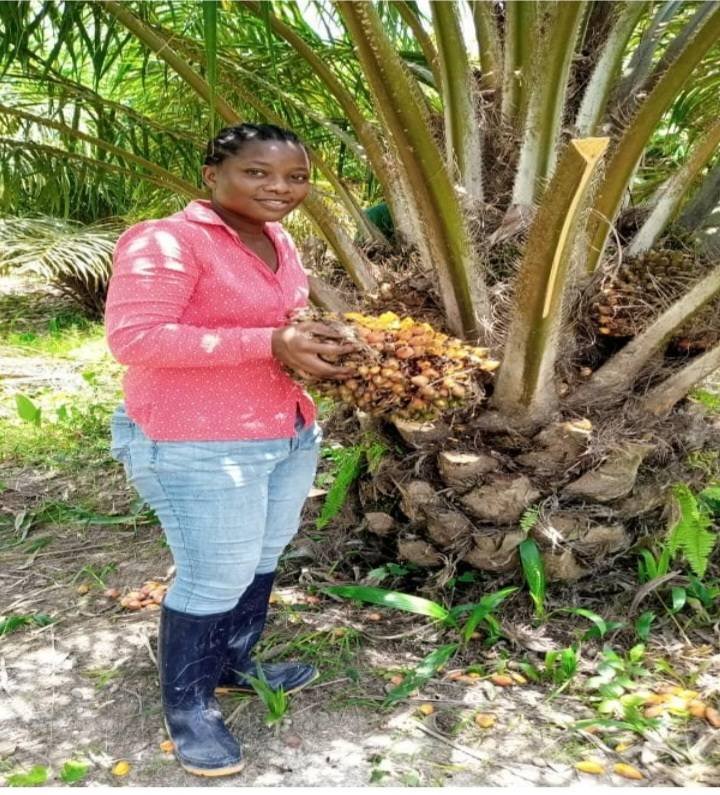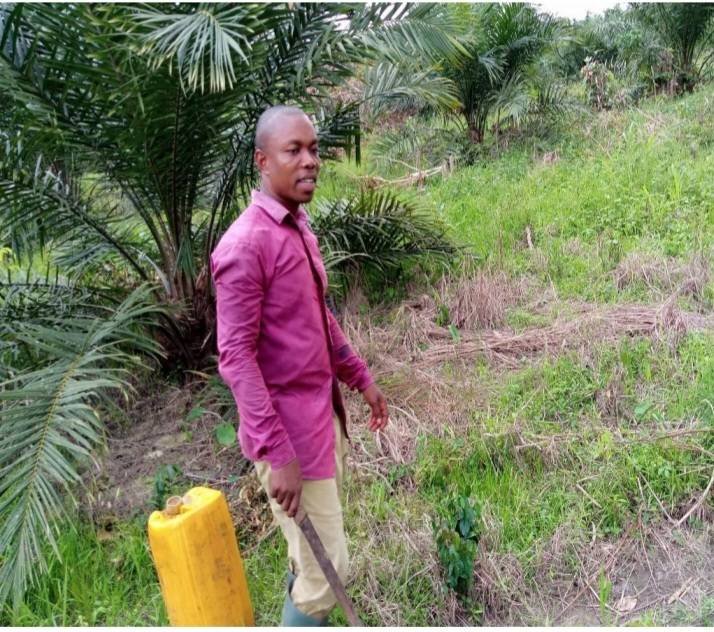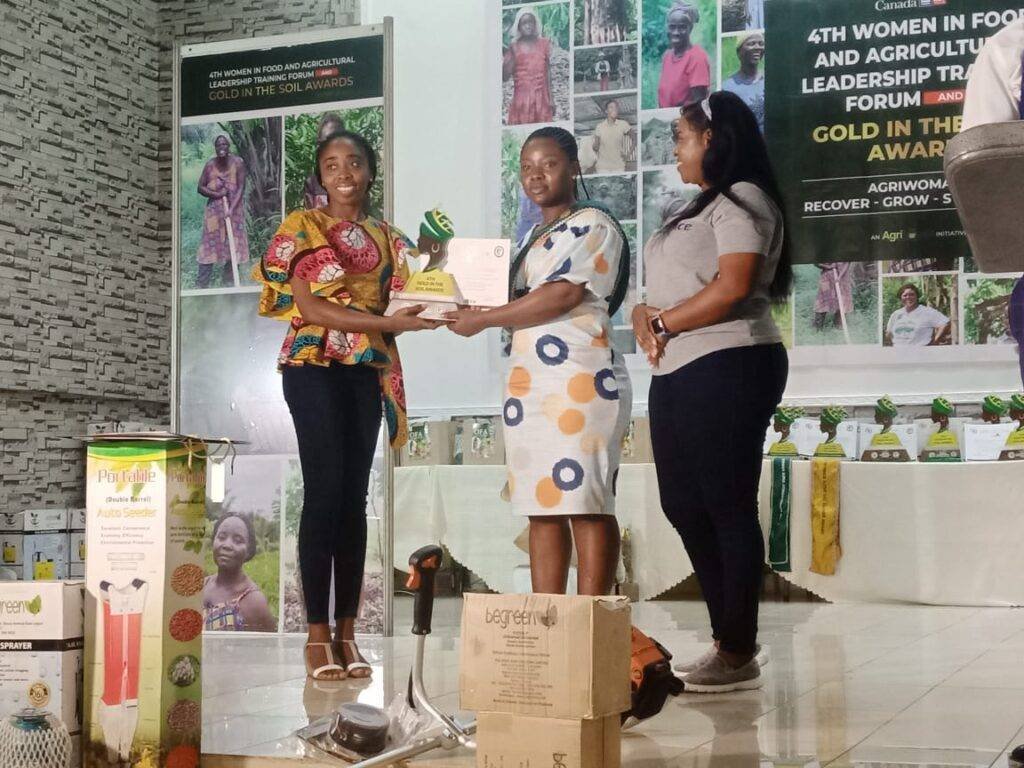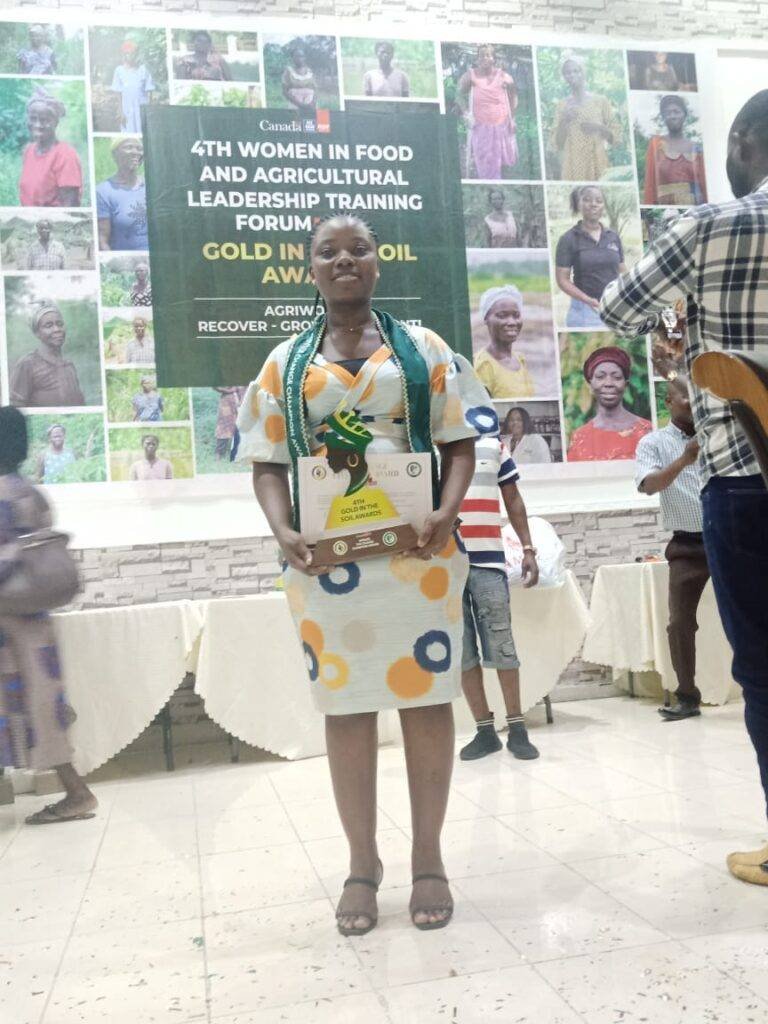Hot!
Setting the pace in Agribusiness…The Mariseth story

Agribusiness trialblazer Mariam Twumasi
Marian Ofori Twumasi is an established young female farmer moving steadily towards global recognition with her company, Mariseth Farms.
Mariseth Farms, an acronym of Marian and Seth (husband’s name) was founded in 2016 and has since grown to become one of the biggest suppliers of palm fruits, palm oil, maize, soya beans and other commodities to companies and households within Accra, Tema and beyond.

Operating on over 400 acre-land at Bibiani in the Western North Region and Asamankese in the Eastern Region, Mariseth Farms is setting the pace within the Agriculture sector.
The 35-year-old Mariam Twumasi, the 2021 National Best Youth Farmer is living the dream of making her farm, the hub for all natural produce (crops and livestock) in Ghana.


The dream, however, started in 2009 at the University of Ghana (UG) where she pursued Business Administration (Accounting).
Though, she had no knowledge about Agriculture, she was determined to venture into the sector and be successful, turning her main course of study into just an additional skill to her now real profession.
She approached the business as a hobby in 2009. She would visit farms with the desire to access some acres of land to start her own. She became successful eventually after securing three acres of land at Asamankese to start a Cocoa farm.

The former student of St. Roses Secondary School at Akwatia, near Asamankese chose the area since it was closer to Accra.
While in the university, she managed to save her pocket money together with some money she made out of her part-time teaching job to secure the land.
The plan was to go into Cocoa farming since she benefitted from Cocoa scholarship due to her father’s job. She later realised Cocoa was long-term so she had to do maize and other short-term crops while seeking for funds to support the long-term Cocoa project.
She then decided to go into some form of business, which was buying plantains from the villages in the area to Accra to sell.
That led to a decision to plant her own plantains and maize which she sold to make money to support her farm.
Mrs Twumasi later expanded the farm to seven acres in Asamankese, in 2012 when she completed university.

It was at that time she met her husband, Mr Seth Ofoe Twumasi who she described as her business partner. She sold the Agribusiness idea to Mr Twumasi which he has since supported.
Mr Twumasi managed to convince chiefs of his hometown, Nkronua at Bibiani in the Western North Region to allocate lands to them to start their farm project which was successful with an initial allocation of 10 acres to start with palm plantation.
The chiefs later realised she was doing well and granted her full access; which gave her over 400 acres of oil palm plantation and about 1000 acres yet-to-be cultivated land.
After a few years, she is able to sell some of the fruits, process some into palm oil and palm kernel oil and manage three fish ponds (catfish), 50 bee hives, livestock, poultry and other facilities on the same farm.
Eventually, she moved into big time commodities after the company, Mariseth was registered in 2016.
She also supplies soya beans, shea nuts, cashew as well as maize to companies and clients mostly in Tema and Accra.
Aside winning the National Best Youth Farmer award in 2021, she was awarded the Best Oil Palm Farmer in 2019, the first runner up, Municipal Best Farmer in 2020, Outstanding Woman in Agribusiness (GOWA 2020) the Change Champion and Young Agri-Preneur of the Year in 2022 and other recognitions. She is looking forward to winning more awards in 2024.
Marian got married to Mr Twumasi in 2013 and together, they have four beautiful girls. She described her husband as a pillar.
In the next five years, she would want to own a Processing Plant in the Western North Region to serve the oil palm farms in the area and a Mariseth Farm Village which would among other essentials have a storage facility.
She advised young people to take advantage of government initiatives in Agriculture and venture into the sector because it is very lucrative.
By Michael D. Abayateye
Hot!
Minority opposes proposed Telecel-AT merger, describes deal as ‘Unconscionable’

The Minority in Parliament has strongly objected to any planned merger or partnership between the government and Telecel, describing the deal as “technically, operationally, and financially unconscionable.”
Ranking Member on the Communications Committee, Matthew Nyindam, raised the concern during a media briefing in Parliament.
He questioned why both the Minister of Communications and Telecel would publicly announce a merger and then suddenly go silent on the matter.
“We object to any deal with Telecel by way of merger, absorption, or acquisition. This is a scheme to dispose of a national asset to fill private pockets,” Mr. Nyindam stated.
He argued that Telecel has not demonstrated any special technical or operational expertise that staff and management of AT (formerly AirtelTigo) do not already possess.
According to him, Telecel had earlier promised to invest $500 million after acquiring Vodafone Ghana but failed to do so, a situation he fears could repeat itself if the government allows another deal.
Mr. Nyindam claimed that Telecel was already indebted to the tune of $400 million, adding that the company only seeks to benefit from AT’s over three million customers to expand its own base without making any real investment.
“The government must not surrender the capacity of a state-owned company to a private entity through majority ownership. There is no clear plan to protect the jobs and livelihoods of thousands of workers,” he stressed.
The Minority Caucus is therefore calling on the government to halt any discussions or agreements with Telecel regarding the proposed merger, insisting that the deal is not in the national interest.
Hot!
DVLA suspends road compliance fines

The Driver and Vehicle Licensing Authority (DVLA) has suspended all fines issued by its Compliance Team on the country’s roads, effective Wednesday, October 15, 2025.
In a statement issued on Tuesday, the Authority explained that the suspension follows feedback from the public and further consultations with stakeholders.
The Compliance Team’s enforcement exercise, which had been intensified in recent weeks, was aimed at ensuring that drivers and vehicles met all legal requirements before operating on the road.
However, the DVLA said it was pausing the activity to allow for more engagement and public education on the exercise before it is reintroduced.
While assuring the public of its commitment to promoting safety and compliance, the Authority emphasized that the suspension only affects the fines and charges being enforced by the Compliance Team.
It added that all legal requirements for drivers and vehicles to operate on Ghana’s roads remain in force.
By: Jacob Aggrey

 Profile6 days ago
Profile6 days agoAlbert Litela Obidiaba: The artist who wove Ghana’s soul into the King’s Baton

 News6 days ago
News6 days agoDaddy Lumba’s wife, children run to court to injunct December 6 funeral arrangements

 News1 week ago
News1 week agoPresident Mahama to meet Auditor-General, Chief Justice and Attorney-General over misuse of public funds






